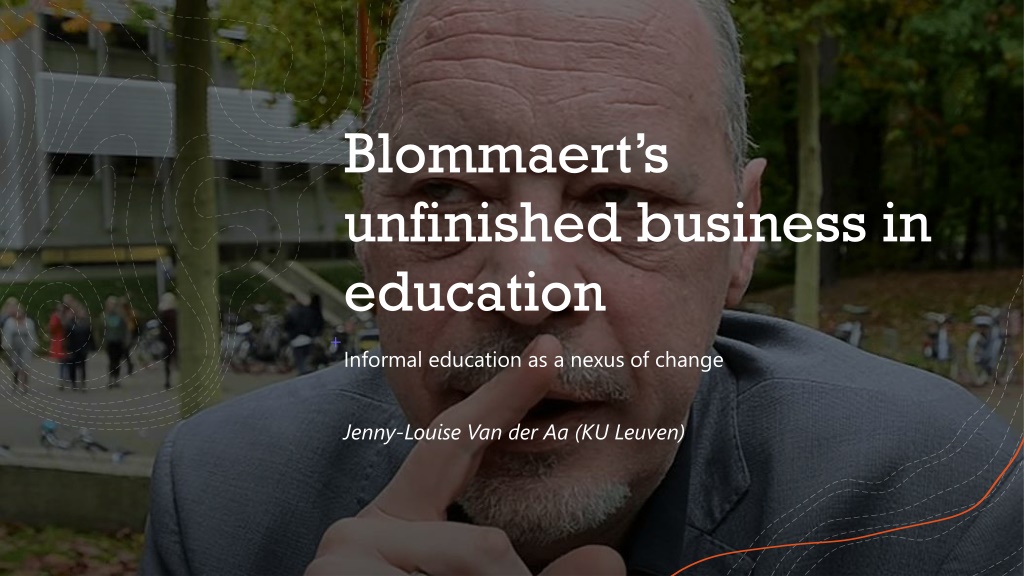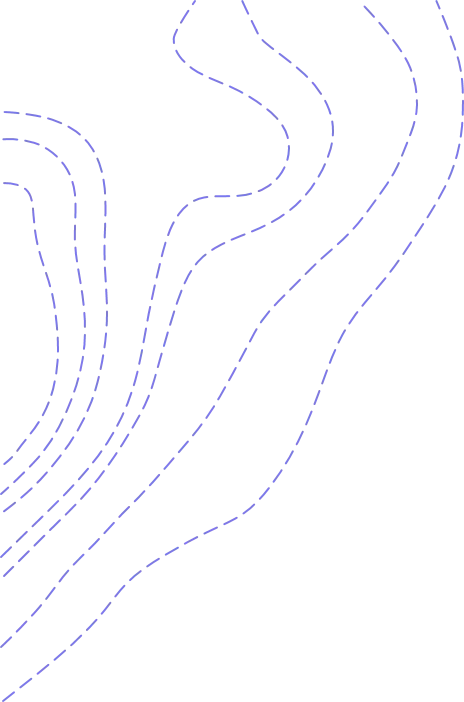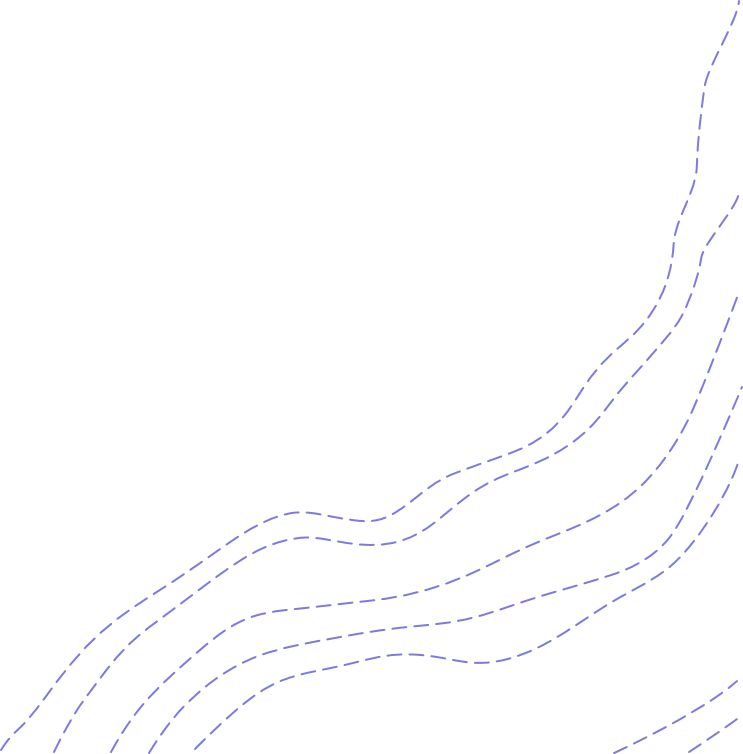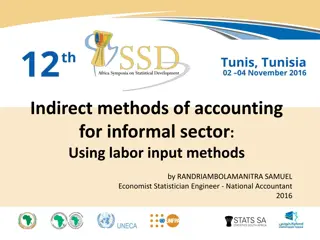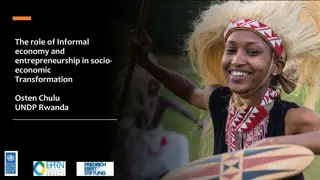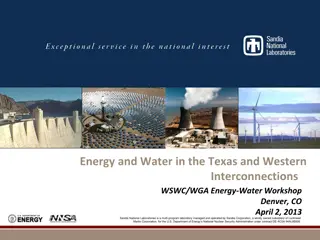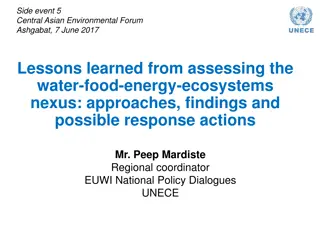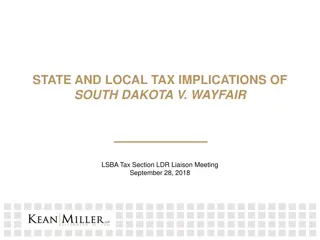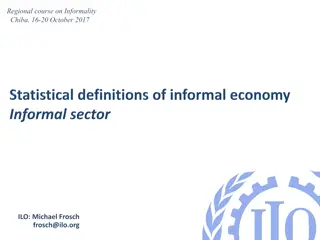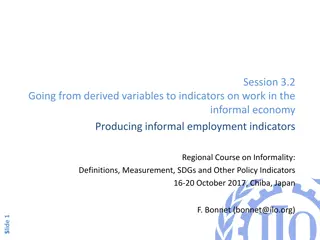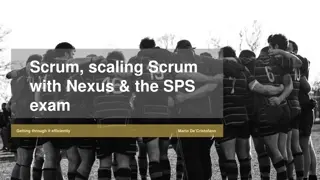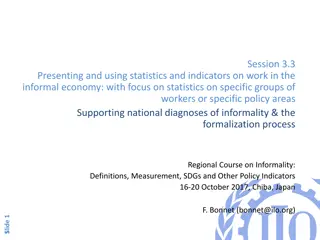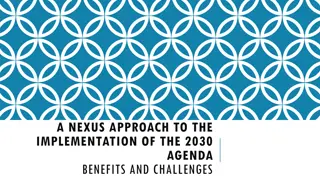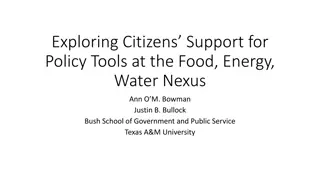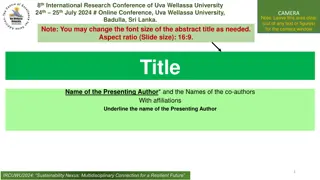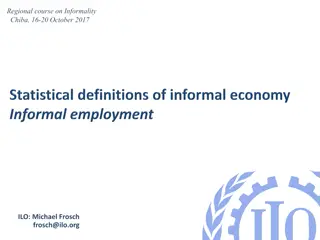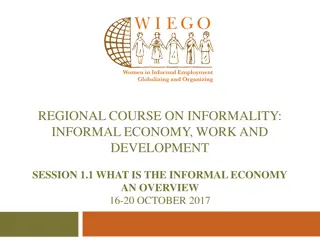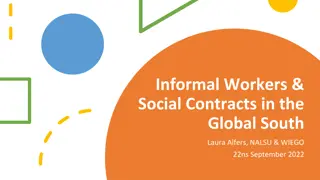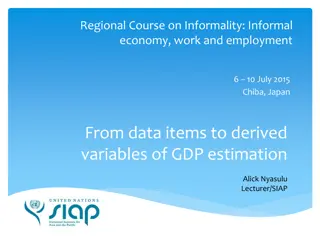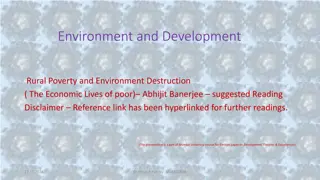Informal Education as a Nexus of Change
Examining the intersection of informal and formal language learning in education through the lens of renowned scholar Jan Blommaert. The research delves into unlocking newcomers' sociolinguistic potential and the evolving landscape of literacy in the digital age. Explore how rapid social change influences grassroots pedagogy at global and local levels, shaping the ways in which informal learning occurs both online and offline.
Uploaded on Mar 10, 2025 | 0 Views
Download Presentation

Please find below an Image/Link to download the presentation.
The content on the website is provided AS IS for your information and personal use only. It may not be sold, licensed, or shared on other websites without obtaining consent from the author.If you encounter any issues during the download, it is possible that the publisher has removed the file from their server.
You are allowed to download the files provided on this website for personal or commercial use, subject to the condition that they are used lawfully. All files are the property of their respective owners.
The content on the website is provided AS IS for your information and personal use only. It may not be sold, licensed, or shared on other websites without obtaining consent from the author.
E N D
Presentation Transcript
Blommaerts unfinished business in education Informal education as a nexus of change Jenny-Louise Van der Aa (KU Leuven)
+ Unlocking newcomers sociolinguistic potential (University of Leuven, 2021-2025) + Researchers: Karel Arnaut, Hannelore Hooft, Lode Vermeersch, Kris Van Den Branden, Tinne Van Regemortel, Mariet Schiepers, Jenny Van der Aa The UNLOCK Project + Ethnographic investigation of newcomers informal and formal language learning processes in order to propose pedagogical prototypes for a transfer between the two spheres + One of the starting points: Jan Blommaert s views on informal learning
Jan Blommaert (1961-2021): who and why? + Sociolinguist, linguistic anthropologist + Intellectual powerhouse + Made a synthesis of globalized discourse-in-use combining a macro perspective: Wallerstein (world socio- economic structures and globalization) a meso perspective: New Literacy Studies (esp. Kress social semiotics and design) a micro perspective: Hymes (discursive patterning)
+ In a recent interview, Jan Blommaert (2020) contends that there is a new learning environment that might support the learning environment in schools but is very often seen as negative to it, as the enemy of learning sort of . Blommaert (2020) on informality + So we as researchers would basically be the agents of literacy, teaching the young generation how to be literate. All these new technologies have reversed that now. We have to learn from the younger generation, how these new forms of literacy operate . + And here is the interesting thing: most of these e- literacies, e.g. how to be successful on Instagram, need to be acquired informally in an extremely dense and extremely organized informal learning environment. So they have learning opportunities that we often miss.
On- and offline Informality and (grassroots) pedagogy Three nexi Global and local nexus=where two tropes come together Rapid social change manifests itself on these three nexi: these are the loci in which informal learning takes place
Micro level: on- and offline + Online with Hymes: the patternedness of social communication + Trump s tweetopoetics (Blommaert 2018)
Meso level: +Pedagogy as design: informal learning and literacy in a variety of social contexts +Kress and the New Literacy Studies +Grassroots Literacies (Blommaert 2008)
Macro level + Wallerstein and the World Systems Analysis + Sociolinguistics of Globalization (Blommaert 2010)
Actions as grounded Rooted in the three nexi A nexus analysis (Scollon & Scollon 2004) of informal learning Integrative approach Mixed methods: use anything there is to use Unit of analysis= mediated action Mediated through: On-and offline frames of reference and of social activity (context collapse, Blommaert & Szabla 2018)=> unexpected outcomes Pedagogy and informality as non-exclusive partners (Blommaert 2020) Glocal frames of reference (orders of indexicality, polycentricity, Blommaert 2007).
+ Jen: Hoe ziede gijle pedagogie dan, allez het uitleggen van Arabisch dan? (Jen: How do you see pedagogy, allez, explaining Arabic then?) + Bashir: Ja, wij gaan daar diep op in. Da s nie om te lachen. Is serieus. Alhamdullilah. (Bashir: Yes, we do it profoundly. It s not for laughing. We take it serious. Alhamdullilah) + Jen: Pedagogie is iets serieus zegde (Jen: Pedagogy is something serious, you say) + Bashir: Jaja (Bashir: Yesyes ) + Jen: maar wa is da dan precies? (Jen: but what is it exactly?) Interview with an Arabic teacher in a grassroots non- profit in Antwerp (2021)
+ Bashir: Wij leggen dan alle regels uit. Maar t belangrijkste is da ze da dan ook thuis gebruiken, allez, vershtade? Interview with an Arabic teacher in a grassroots non- profit in Antwerp (2021) (Bashir: We explain all the rules. But the most important is that they also use it at home, allez, do you understand?) + [Bashir s telephone beeps] + Bashir: Wacht mijnen telefon [takes phone] [talks Arabic in whatsapp] (Bashir: Wait my phone) Bashir: Ja altijd storen die business da moet draaien eh, groenten komen mijn oren uit (Bashir: Yes always disturbing, that business, it has to go on eh, I ve had it with these vegetables)
+ Micro-level: Patternedness of the mediated interaction From offline to online and back + Meso-level: Pedagogical habitus in informal settings Speaking on one s own terms=pedagogical voice (We teach it like that) + Macro-level: Glocal connections (1) polycentricity: connected with multiple centers: interaction, grocery shop, classroom (2) Orders of indexicality: indexing authority ( majestic We ), craftsmanship ( business ) and Islamic identity ( Alhamdullilah ) Nexi of change
From interaction to social change + Interactional patternedness reveals deeper laying (1) polycentric orientations and (2) orders of indexicality + These orientations and orders move through a pedagogical voice within an informal learning environment + They speak to glocal tropes of learning, but also tropes of other (in)formal activity + Re-vising Jan Blommaert s work as an application of voice ( to be heard and understood on one s own terms Blommaert 2006; Van der Aa 2013) in a negotiated pedagogical informal environment + Bringing these informal nexi to more formal environments is one avenue of bringing about social change
References + Blommaert, J. (2006). Applied ethnopoetics. Narrative Inquiry 16(1):181-190 + Ibid. (2007). Sociolinguistics and Discourse Analysis: Orders of Indexicality and Polycentricity. Journal of Multicultural Discourses. 2(2):115-130 + Ibid. (2008). Grassroots Literacy. London/New York: Routledge. + Ibid. (2010). The Sociolinguistics of Globalization. Cambridge: Cambridge University Press. + Ibid.(2018). Trump s Tweetopoetics. Tilburg Papers in Culture Studies 203 + Blommaert, J. & J. Van der Aa (2020). Research, teaching, activism. Working Papers in urban Language and Literacies. + Szabla, M. & J. Blommaert (2017). Does context really collapse in social media interaction? Tilburg Papers in Culture Studies 201 + Kress. Pedagogy as design. Madrid: UTE: Revista de tecnologia educativa 2: 23-27. + Scollon, R. & S. W. Scollon (2004). Nexus Analysis: Discourse and the Emerging Internet. London: Routledge. + Van der Aa, 2013. The poetic patterning of Caribbean Independence. Anthropology and Education Quarterly 44(2)
